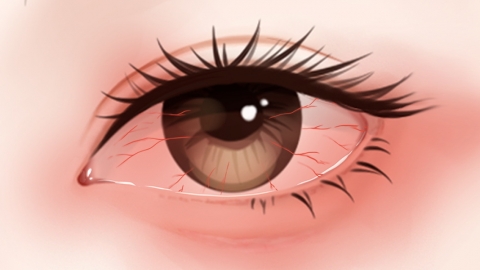What eye drops are used for allergic conjunctivitis?
Allergic conjunctivitis requires targeted anti-allergy eye drops to relieve symptoms. Commonly used options include olopatadine hydrochloride eye drops, sodium cromoglicate eye drops, levocabastine hydrochloride eye drops, ketotifen eye drops, and fluorometholone eye drops. If in doubt, it is recommended to consult a doctor in advance. Detailed analysis is as follows:

1. Olopatadine Hydrochloride Eye Drops: A combination formulation with antihistamine and mast cell stabilizing properties, this medication quickly relieves symptoms such as itching and tearing, while also inhibiting the progression of allergic reactions. It is suitable for both acute and chronic allergic conjunctivitis.
2. Sodium Cromoglicate Eye Drops: A mast cell stabilizer that works by preventing mast cells from releasing allergens. Its effect is relatively mild and it is best used regularly in advance to prevent episodes of allergic conjunctivitis.
3. Levocabastine Hydrochloride Eye Drops: A potent antihistamine eye drop that rapidly and competitively binds to histamine receptors, effectively relieving allergic symptoms such as eye itching and eyelid swelling. It has a long duration of action, requiring fewer daily applications.
4. Ketotifen Eye Drops: Possesses dual actions of antihistamine effects and mast cell stabilization, providing prolonged anti-allergy relief. It effectively reduces ocular allergic responses and is suitable for treating various types of allergic conjunctivitis.
5. Fluorometholone Eye Drops: A corticosteroid eye drop with strong anti-inflammatory effects, indicated for severe cases of allergic conjunctivitis. It should be used short-term under medical supervision to avoid potential side effects associated with long-term use.
Hands should be cleaned before using eye drops to prevent contamination of the bottle tip by contact with the eye. Different eye drops are suited for different conditions; non-steroidal medications are preferred for mild symptoms. If symptoms do not improve after one week of treatment, or if complications such as increased intraocular pressure or blurred vision occur, prompt medical consultation is advised to adjust the treatment plan.






